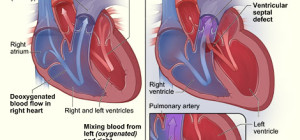 Almost universally, those who suffer from a brain injury complain of fatigue. This can disrupt lives and make working untenable. We can all empathize with mental fatigue - an afternoon spent reading through a hard textbook or balancing numbers can leave us all feeling exhausted (even though we've been sat down the whole time).
Almost universally, those who suffer from a brain injury complain of fatigue. This can disrupt lives and make working untenable. We can all empathize with mental fatigue - an afternoon spent reading through a hard textbook or balancing numbers can leave us all feeling exhausted (even though we've been sat down the whole time).
Although fatigue is often unavoidable, after a head injury, you can lessen its effects with the following tips:
Eat!
Eat small, regular, healthy meals throughout the day. This will consistently top-up your energy levels. Stay away from foods high in sugar and caffeine, however, as they will give you short bursts of lucidity, followed by crushing come-downs.
Exercise
If you've just been in an accident, it may not be appropriate for you to start exercising - consult your doctor first. However, if you're able to take regular, moderate exercise, then get out there! You will feel more awake and experience a greater sense of well-being. Start small. Build from there.
You may even lose a little weight, which means your body will be lighter to cart around.
Sleep Well
Many of us don't get the rest we need every night. Try to get yourself into scheduled sleeping and avoid naps during the day. A warm bath before bed can start preparing you for the land of nod, as well as a good book. Try to get the sleep you need. Click here for more advice about nodding off.
Talk About Your Feelings
This may sound very fuddy-duddy, but you know what they say: a problem shared is a problem halved. Worries and feelings can stop you from getting the rest you need, and they certainly emotionally drain the body. Either talk to a counselor or a friend regularly about your experiences and difficulties. Or in more serious circumstances which were not your fault, discuss your brain or head injury claim with your local solicitor. It will help alleviate any pain or suffering you may be facing.
Reduce Caffeine Intake
Serial tea or coffee drinkers should aim to very gradually reduce their intake of caffeine. Once you've cut out the substance altogether, ask yourself (after a month or so), if you feel less tired than you used to.
Drink Less Alcohol
Alcohol can seriously hamper your sleep. The only substance that seems to help you nod off is red wine. Replace your beer or spirit with a small glass of vin rouge before you hit the pillow or cut out alcohol altogether.
H2O
Dehydration is a huge culprit for fatigue. Keep a large bottle of water with you at all times and regularly sip from it. Taking on fluids is especially important if you exercise too.
Take Breaks
When you start to feel extremely fatigued, take a break from whatever you're doing and rest. Don't sleep. Just recharge your batteries for ten minutes or so. Take it steady. Do some meditation. Go for a gentle stroll. It's important that you get away from whatever is sapping your energy and relax. Sometimes, this may mean a day of sitting in your pyjamas. So be it.







